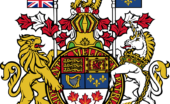Re Ian Bremmer 'Could third-party candidates upend the 2024 US election?' 3 April The current political movement in the USA…
Canada Heritage/culture
Written by Diana Thebaud Nicholson // April 28, 2016 // Canada // Comments Off on Canada Heritage/culture
CBC Board Member Resigns to Seek Conservative Presidency
Lateral move shows need to reform board appointments, watchdog says.
(The Tyee) Brian Mitchell, a Montreal lawyer, confirmed that he resigned Sunday after eight years on the government-funded broadcaster’s board of directors and its pension board of trustees.
Meanwhile, a CBC watchdog group said Mitchell’s move, and the number of other appointees with political ties, show why there is a need for a new board appointment process for the public broadcaster.
Friends of Canadian Broadcasting spokesman, Ian Morrison, said that while Mitchell did the right thing by stepping down to seek the party presidency, the situation again highlights how the CBC’s board can be too easily loaded up with those close to political interests.
Such appointments can cause a problem even after a party is ousted, Morrison said, explaining how the Liberals must now rely on a board appointed by their political enemies to spend a $675-million cash injection to the CBC in coming years.
23 April
This should generate some passionate discussion!
‘Everything’s on the table’
Heritage Minister Mélanie Joly says the main goals of her office’s review of Canadian content rules and regulations, announced Sat., April 22, 2016, are to foster creation of Canadian content and increase the international audience for Canadian creators.
Changes to Canada’s cultural policies would be first major overhaul in decades, reports Daniel Leblanc. Heritage Minister Mélanie Joly announces the launch of public consultations with consumers and content creators with an aim to bring Canada’s cultural properties – everything from the Broadcast Act to the CRTC – into the digital age.
Announcing the launch of consultations with consumers and creators of cultural content, Ms. Joly said she is willing to change laws such as the Broadcasting Act and the Telecommunications Act, modify the mandates of the CRTC and the CBC, and create new laws or agencies, as needed. The scale of the coming upheaval hasn’t been seen in 25 years, since the Mulroney government revised the Broadcasting Act in 1991 at a time when no one could foresee the arrival of YouTube, Netflix and iTunes.
The consultations are starting Saturday with an Internet poll, to be followed by public hearings after Labour Day.
The government is guaranteed to hear widely diverse and contradictory views during its consultations. Common complaints these days include musicians and artists who can’t make a living selling their creations on the Internet, Canadian cable and television firms that are riled by foreign Internet rivals that don’t charge sales taxes, and media firms that decry the publicly funded CBC’s unfair advantage at selling advertising.
At the same time, an agency like the Canadian Radio-television and Telecommunications Commission (CRTC), which enforces federal legislation over broadcasters and telecommunications firms, has had a hard time forcing media giants to offer flexible and affordable cable packages to consumers.
The questions that are being put to Canadians in the online consultation touch on key and controversial issues facing Canada’s broadcasting and cultural industries, including existing limits on foreign ownership of media companies and the Canadian content rules for television and radio. The document also seeks input on what should be the CBC’s priorities for the future, offering choices such as focusing on local content, reflecting the country’s diversity, fostering a new generation of creative talent or offering all of its content on a variety of platforms, including digital.
The online questionnaire, which can be filled out until May 20, will be used to prepare the second phase of consultations, to be called “Strengthening Canadian Content, Discovery and Export in a Digital World.” A yet-to-be-announced panel of experts will oversee the process, to be completed by the end of the year.
It’s starting
Blowing up the system to save it
Canada’s digitally savvy Heritage Minister Mélanie Joly wants to yank the country’s media business into the twenty-first century. But as Simon Houpt writes, digital disruption has a way of outpacing government policy
It’s a move fraught with risk and opportunity. Ms. Joly could have simply fulfilled the Liberal campaign promise of more money for the CBC, National Film Board and Telefilm Canada and then taken her phone off the hook. But, as a digital native who lives on her iPhone (and who has seen her boss, Justin Trudeau, savvily use the unregulated platforms of social media to connect directly with voters), she recognizes that the sector urgently needs attention as much as it does money, especially after the previous government’s posture toward culture vacillated for years between neglect and open hostility


